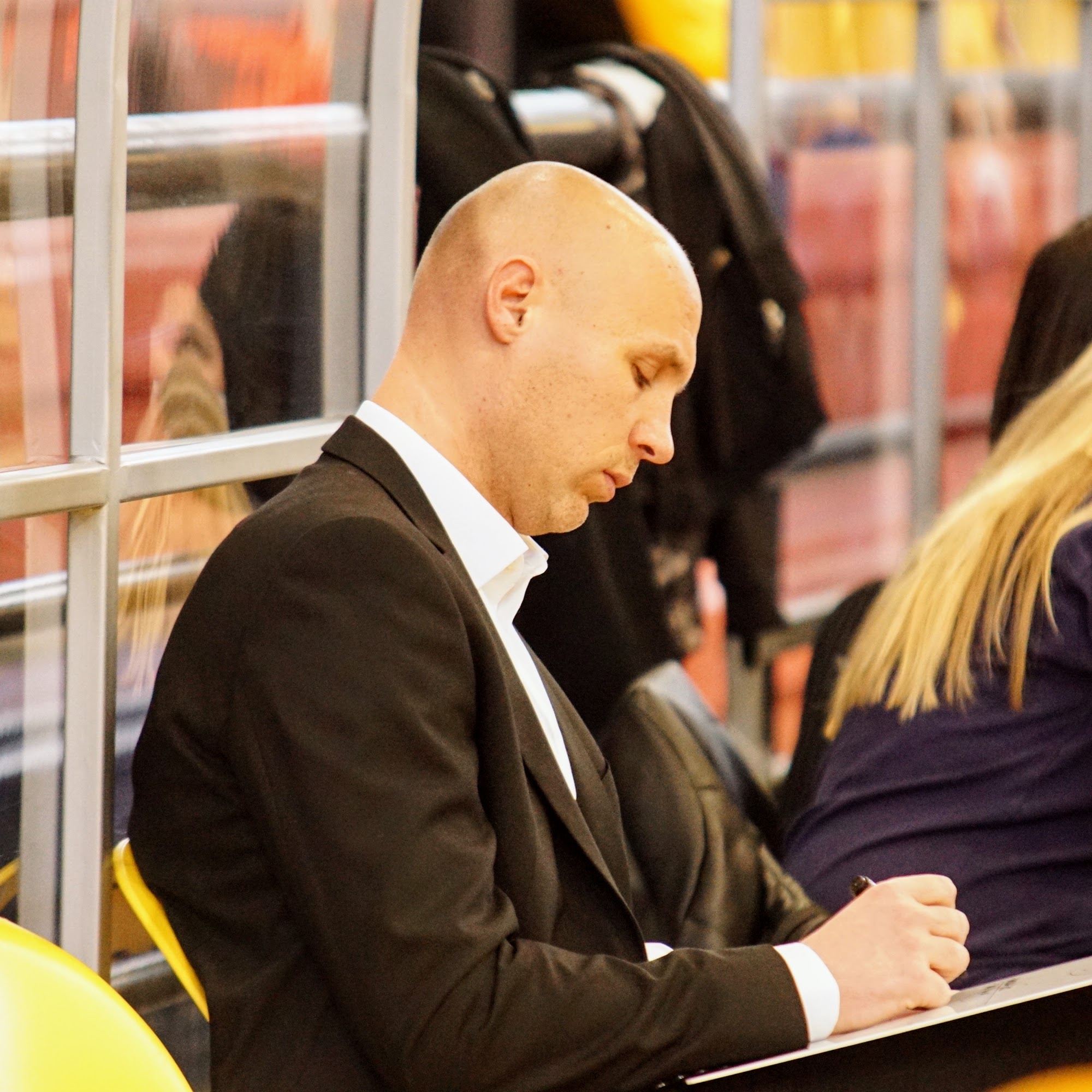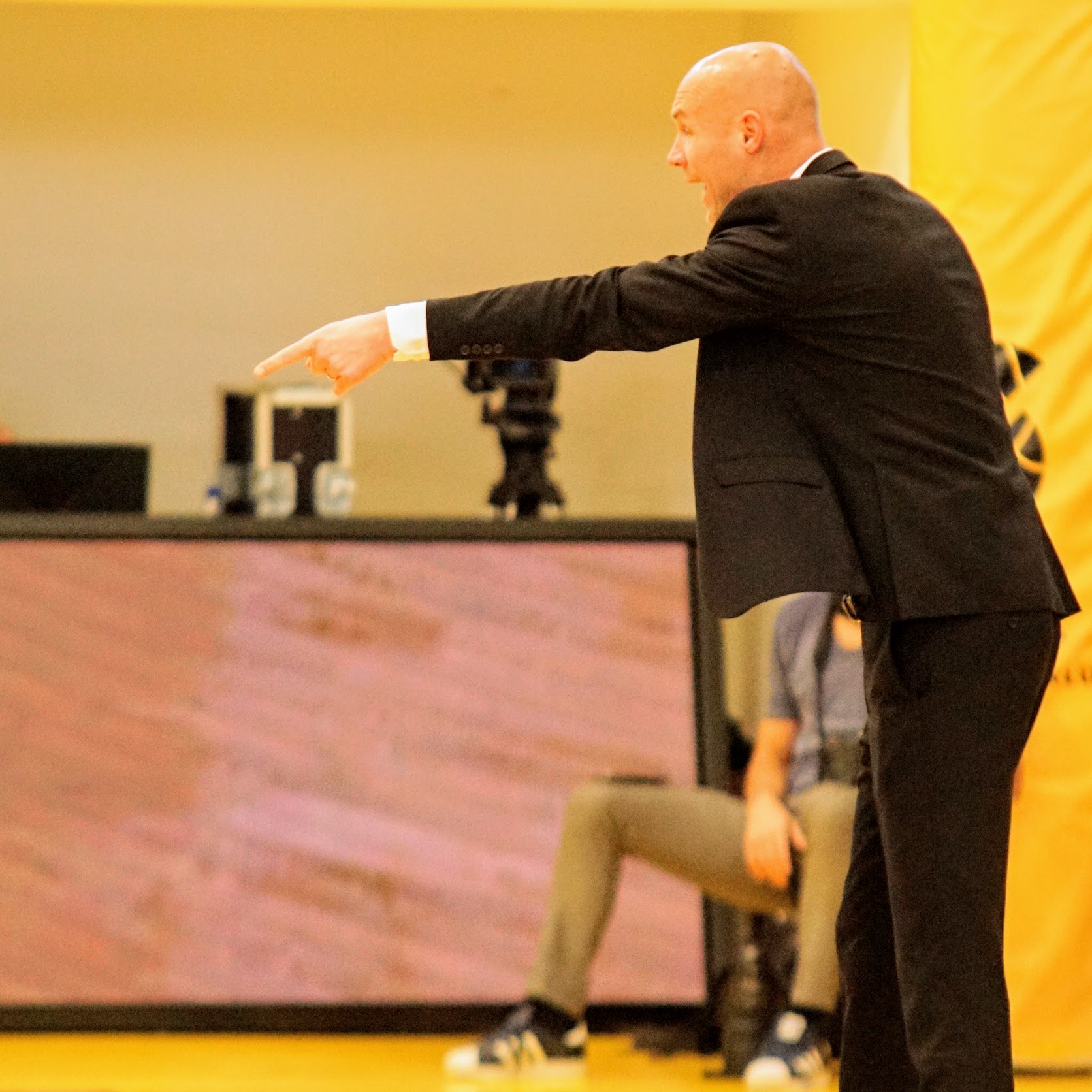Government Increases Financial Aid for Croatian Earthquake Reconstruction
April the 3rd, 2021 - The government has increased the sum of financial aid intended for the Croatian earthquake reconstruction process. Here are the new amounts and procedure details.
As Poslovni Dnevnik writes, the financial aid for the reconstruction/rehabilitation of non-structural elements on property damaged in the earthquake is now being increased from the previous 12,000 kuna to 16,000 kuna. This will regard family homes, residential and commercial buildings, apartment buildings and office buildings.
If such an application for these funds regards a family house without special parts needing other forms of more specialist attention, the increase is 25,000 kuna. In addition to chimneys, the term ''non-structural'' refers to elements of the property and the roof, gable walls, staircases and lifts.
All of the funds related to the implementation of this Decision on the Croatian earthquake reconstruction process are provided by the Reconstruction Fund, and are to be paid out based on the decision of the Ministry of Physical Planning, Construction and State Property.
The right to a refund
People who have already started to repair the damage to their properties caused by the earthquakes of 2020 on their own have the right to a refund in certain cases. In order to exercise the right to a refund, you must:
Hire a certified engineer to do the repair study
Hire a contractor
Hire a certified civil engineer, or a certified mechanical engineer (for boilers and gas installations)
Keep all of the original invoices
Include a complete application. This relates to Form/Obrazac 5 from the Ministry of Physical Planning, Construction and State Property.
This must be submitted by the owner, co-owner, representative of the co-owner, or the manager of an apartment or business building.
The completed request must then submitted to the Ministry of Physical Planning, Construction and State Property in Zagreb (Ulica Republike Austrije 20).
The delivery of the completed application can be done in different ways:
In person at the office
By mail
In the relocated offices of the competent Ministry:
Sisak: Ulica Ivana Kukuljevica Sakcinskog 1;
Petrinja: Trg Matice hrvatske 18;
Glina: Trg bana Josipa Jelacica 2;
Hrvatska Kostajnica: Ulica Vladimira Nazora 17;
Lekenik: Zagrebacka ulica 77A
By using the e-Renewal application in the e-Citizens (e-Gradjani) system.
The application deadline is December the 31st, 2021.
Applications for financing the lease of a replacement apartment are also being received.
On March the 12th, 2021, the Ministry of Physical Planning, Construction and State Property published a Public Invitation for financing the rent/leasing costs for housing for persons whose property was damaged during the earthquake in the City of Zagreb, Krapina-Zagorje, Zagreb, Karlovac and Sisak-Moslavina counties.
For more, follow our politics section.
Phase 3 Vaccination Plan in Croatia: The Doses and Details
April 3, 2021 - Could 100,000 doses be delivered each week? A look at the phase 3 vaccination plan in Croatia.
Jutarnji List reports that in the second half of April, Croatia should vaccinate everyone over the age of 65 with one dose of the coronavirus vaccine, 55 percent of the total adult population should be vaccinated by June 30, and 70 percent by the end of the summer. The third phase of mass vaccination at the Zagreb Fair should finally start from mid-April, which will include all those who have registered on the cijepise.zdravlje.hr platform, according to the order of applications.
In the week when we recorded a significant increase in the number of new cases, good news arrived on Thursday night from Brussels. It was agreed that an additional 747,000 doses of Pfizer vaccine would be delivered to Croatia by the end of June. This month, Croatia should get 600,000 doses from different manufacturers, which is more than in the first three months of this year in total, which finally allows us to start mass vaccination.
Already this week, more than 120,000 doses of vaccine arrived. Zagreb received 30,000 doses of AstraZeneca on Friday, and on Wednesday, says the "Štampar" director, Zvonimir Šostar.
"We are going to finish the second phase, and then from April 15, we will enter the third phase where we will invite all Zagreb citizens registered on the cijepise.zdravlje.hr platform. Citizens will get the exact dates, and as they applied, we will call them. We ask everyone to come at the right time, and not earlier so as not to create crowds," says Šostar and adds that those who reported to their doctors will also be vaccinated because they had to register them on the platform.
"We are now in the middle of the second phase of vaccination in the whole country, but there are several people from that phase who do not want to be vaccinated, so I believe that the third phase could start on April 15 in Zagreb. We will determine the economic priorities for vaccination, and we will send all the surplus to the points for mass vaccination," says the director of the Croatian Institute of Public Health, Krunoslav Capak
Tourism Minister Nikolina Brnjac said on Friday that she expects tourism workers to begin vaccinations in May. With these additional doses of Pfizer, Croatia has now exceeded the number of 9 million ordered doses. With that, Croatia will be below the EU average by June 30 because the Union will be at 65 percent, and Croatia at 55 percent of vaccinations. This ratio would have been much worse if these additional doses had not been agreed upon because only 90,000 doses would have arrived in Croatia in the second quarter under the proportional "pro-rata" system. Croatia is now at 11.4 percent of adults vaccinated with a single dose, while the EU average is 13.9 percent.
It is unknown what amounts will arrive per week from these additional doses, but more than 50,000 doses can be expected each week until the end of June. Also, Croatia should receive 50,000 to 70,000 doses ordered earlier, which means that Croatia could have more than 100,000 doses per week.
Negotiations over these additional doses, sources say, have been quite difficult. Croatia thought that a larger amount of vaccines should be given to those countries with below-average vaccination coverage because they bet on AstraZeneca, which delivered only 30 percent of the agreed doses to the EU and only 17 percent to Croatia. In addition to Croatia, the winners of this agreement are Bulgaria, which has the lowest vaccination coverage, Latvia, Estonia, and Slovakia, while the biggest losers are the Czechs. Namely, an agreement was reached between 24 member states, and Austria, the Czech Republic, and Slovenia did not join in because they demanded a larger amount of doses for themselves. However, all three countries will be above the EU average in July.
Other countries did not agree to this, and Austrian Chancellor Sebastian Kurz and his colleagues from Slovenia and the Czech Republic remained isolated. It was not well received that Kurz was photographed with the Russian ambassador at the time when solidarity was being discussed, and it is significant that German Chancellor Angela Merkel did not even want to receive him in Berlin two weeks ago. Eventually, 19 states waived part of their total of 10 million doses arriving in the second quarter instead of the fourth.
Austria and Slovenia got something more than giving up part of their pro-rata doses but will not get anything in the fourth quarter. However, the Czech Republic, which is the hardest-hit country in the EU, received even less because it did not agree. For this principle that, in addition to pro-rata, vaccination is also considered, given the problems with AstraZeneca, Croatia advocated for an expert body of the Council, the so-called Steering Board. However, no agreement could be reached because the Scandinavian countries and Malta opposed this model.
After that, the European Council was held, after which some countries changed their position. Then, the conclusion was to find a solution in the "spirit of solidarity" for the distribution of these doses and to move the negotiations to the Permanent Representatives Committee (ambassadors). The Portuguese Presidency has put on the table a proposal to distribute 70 percent of the doses to everyone and 30 percent to go to these five states. And that was eventually accepted.
For more about Covid-19 in Croatia, follow TCN's dedicated page.
For the latest travel updates and COVID-19 news from Croatia, CLICK HERE.
First Wheelchair Tennis Tournament in Split held at Firule Tennis Center!
April 3, 2021 - As a kind of overture to this year's Split Open, the organizers prepared a commendable action and organized a wheelchair tennis tournament in Split that they hope will become a tradition!
At the first historic tournament held at the Tennis Center in Firule, the winner was Split representative Sven Maretić who initiated the action. Best Croatian wheelchair tennis player Anto Joskić and the young Ante Kolunđija from Dubrovnik also played. Maretić defeated Joskic 7:5, 2:6, 10:8, and Kolundija 6:1, 7:5, while Joskic took second place, beating Kolundija 6:4, 6:1.

Robert Pleško
But the result was less important in this case. Much more important was the message that wheelchair tennis is also arriving on the sports map of Split, for which Maretić is primarily responsible as the founder of the Tennis Club for Persons with Disabilities Split 2020.
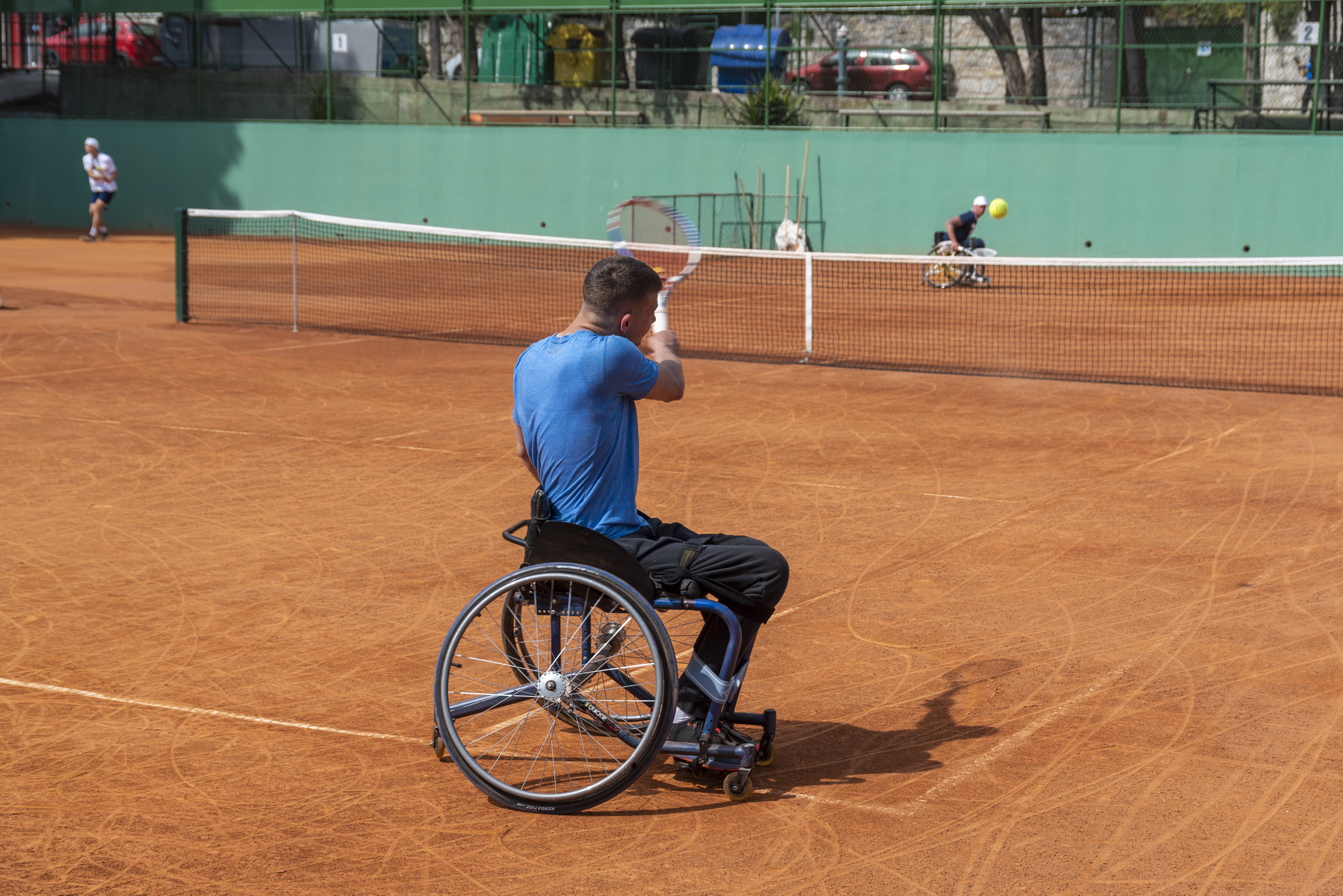
Robert Pleško
"Thanks to everyone who helped make this story come to life south of Zagreb, and to the organizer for the opportunity. With this event we want to raise awareness in a community that, I must emphasize, is no longer closed as before. If the Split Challenger becomes an ATP 250 series tournament next year, so will we, and the City of Split will be behind us. It is a noble purpose, and the people of Split love tennis and I hope that the wheelchair tennis tournament will become a tradition," said Maretić, who is praised for the triumph over Joskić, especially since he has only been playing tennis for a year.
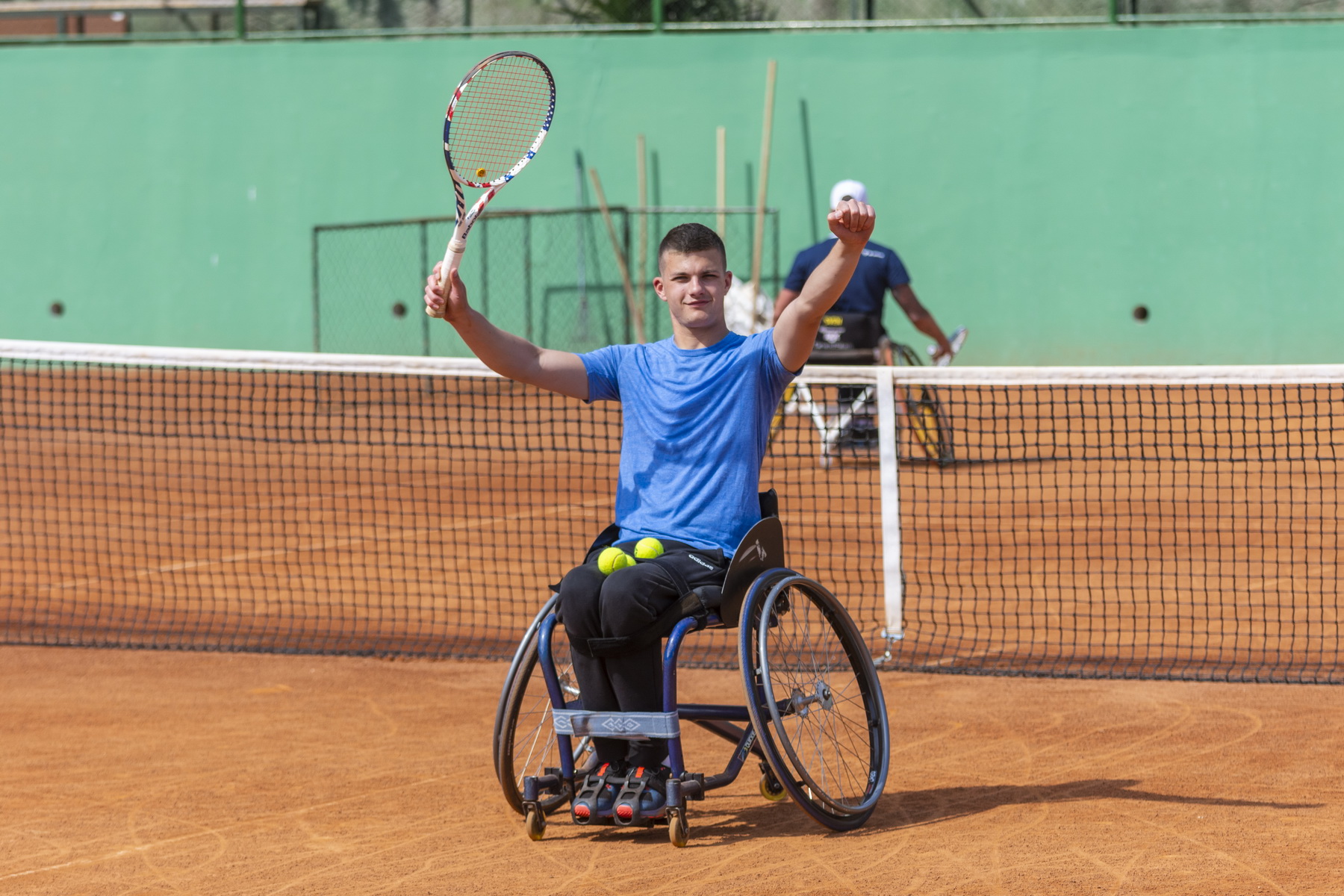
Robert Pleško
"This victory will lift me up, but my ambitions are even bigger."
For wheelchair tennis, the rules are the same as on the ATP Tour, except that here the ball can fall to the ground twice.
"Yes, all other rules are the same and all players are in the same absolute category, although it would be fairer to divide us by the number of injuries. Wheelchair tennis has long been an integral part of the Grand Slam tournament, and I hope that in the future it will become the standard at the ATP level as well. Umag has been doing this for years," added Maretić, a guy of indestructible spirit who started wheelchair basketball in his hometown a few years ago.

Robert Pleško
"The smallest problem is my will and desire to turn it into a sport. We want to create the widest possible range of sports for people with disabilities in Split, so that they can compete and socialize," concluded Sven Maretić.
To read more about sport in Croatia, follow TCN's dedicated page.
To learn more about sport in Croatia, CLICK HERE.
Condor Flights to Split, Aerflot Flights to Pula and Dubrovnik Announced for Summer!
April 2, 2021 - The latest flight news in Croatia with the announcement of Condor flights to Split and Aeroflot flights to Pula and Dubrovnik this summer!
Croatian Aviation reports that German leisure airline, Condor Airlines, will operate only to Split Airport this summer.
Before the pandemic, Condor Airlines operated to four Croatian airports: Rijeka, Zadar, Split, and Dubrovnik. In the summer of 2020, Condor operated only to Split, and although there were flights to Zadar in the announcements for only a month, this will no longer happen.
Condor previously announced the Zurich - Split line for this summer season, but tickets have been withdrawn from sale.
This year, the company will not fly to Rijeka, Zadar, and Dubrovnik
In the summer season, from mid-May, Condor will launch three routes to Split Airport:
Munich - Split will be in traffic once a week, on Saturdays,
Dusseldorf - Split will be in traffic three times a week, on Tuesdays, Fridays, and Saturdays,
Frankfurt - Split line will be open three times a week, on Tuesdays, Fridays, and Saturdays.
Previously, Condor offered tickets on the line from Frankfurt to Zadar, and in 2019 it operated on the line from Frankfurt to Rijeka. However, low demand has forced this carrier to reduce the flight schedule to Croatia, and Condor Airlines will only fly to Split.
Furthermore, Croatian Aviation reports that the Russian national airline Aeroflot will introduce a line to Pula in June this year and renew the line between Moscow and Dubrovnik!
The Moscow - Pula - Moscow line will run from June 1 to September 30, every day! The airline will perform 122 return flights between Pula and Moscow this summer with B737-800 aircraft with a capacity of 158 seats in the Aeroflot fleet. Almost 40,000 seats will be available in both directions!
The Moscow - Dubrovnik - Moscow line will operate in the same period as the line to Pula, with the same type of aircraft, so almost 40 thousand additional seats will be available here.
The company has withdrawn the Moscow-Split-Moscow line from sale, and it is not yet clear whether it will operate on this line in the upcoming summer season. In the summer of 2020, this Russian airline did not operate in Croatia.
The number of weekly flights to Zagreb has been reduced. Aeroflot currently operates once a week between Moscow and Zagreb. And from May 1, a second weekly flight is available (Thursdays and Saturdays).
From June 7, the line between Moscow and Zagreb will operate three times a week (Mondays, Thursdays, and Saturdays), which will continue throughout the summer (July, August, and September). This is a significantly smaller number of weekly operations, given that Aeroflot announced daily flights in the peak of the summer season until a few days ago. Still, the reduction is logical given that the company will operate directly to Dubrovnik and Pula. On the route to Zagreb, Aeroflot will use A320 aircraft.
The company was in Zagreb only once in 2020, on a charter flight from Moscow with a B777-300ER aircraft, transporting medical equipment from Shanghai.
Follow the latest on flights to Croatia HERE and the latest travel updates and COVID-19 news from Croatia HERE.
For more on travel in Croatia, follow TCN's dedicated page.
Split Open: Two ATP Challenger Tournaments in Split this Month!
April 3, 2021 - The second edition of the ATP Challenger Split Open this year will be a two-parter! Week after week, two ATP Challenger tournaments in Split will be played, from April 5 to 11 and from April 12 to 18, at the Tennis Center in the Firule neighborhood of Split.
Last year's premiere edition at the beginning of autumn was a success, and this year an additional step forward is expected in all segments of the organization.
Just before the start of the tournament, a press conference was organized on the terrace of the Split Tennis Club 1950 in Firule, where the tournament director Ismar Moralić revealed the main news.
“The fact that we have two tournaments is a reward for all the good we did last year. The original date was from April 12 to 18, and then there was an opportunity for another tournament that we couldn’t miss. Unfortunately, despite all our efforts, we did not get permission for spectators in the stands. These are some things we can’t influence.
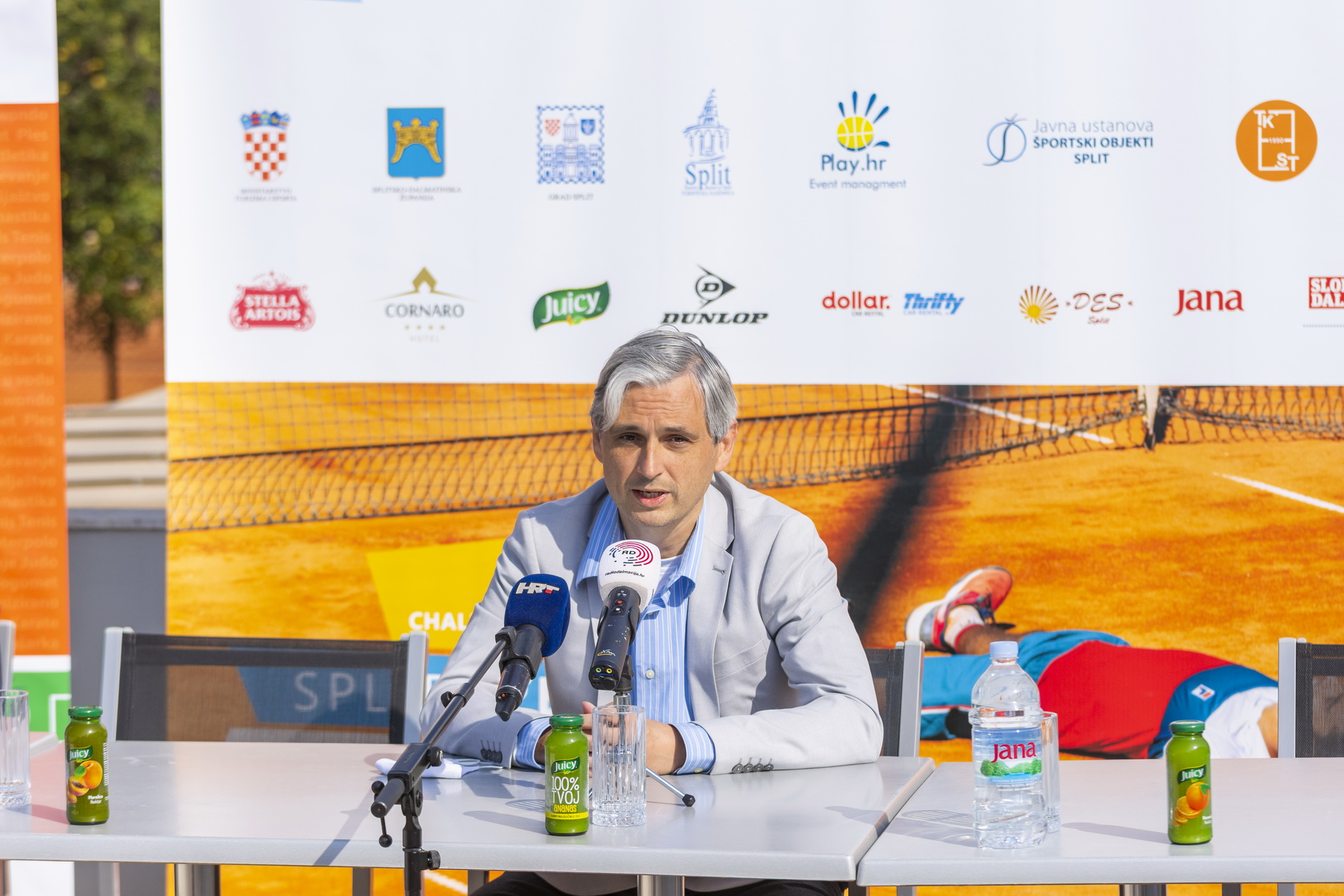
Robert Pleško
Strong names in the draw are expected this year, although Moralić points out that the final list of players depends on the negative tests for Covid-19, which the players must submit by Sunday.
“The ‘cut’ for the main tournament is 188th place, and for the qualifiers 216. Again, none of our players could enter the qualifiers, giving them invitations for the main tournament. They go to the local boys and last year's semifinalists Borna Goja and Duja Ajduković and our Davis Cup national team member Nino Serdarušić. I believe the second tournament will be even stronger as only Monte Carlo is played that week. We have 32 players in the draw, and 450 of them applied for the tournament. This year we also had pre-qualifications in which 40 players competed. They were a complete hit, and that is the direction we will continue.”
Moralić thanked everyone without whose support the tournament would not have been possible.
“Thank you to the City of Split with Mayor Andro Krstulović Opara, who recognized the project; thank you to Split-Dalmatia County, the Split Tourist Board, and the Split Sports Federation headed by Andrija Polić. Look at the club today; it looks better than a year ago, infrastructurally and the court's quality."
Mate Omazić, Head of the Department for Social Activities, spoke on behalf of the City of Split.
“Under normal conditions, the goal was to have a tournament before Sv. Duje, in the pre-season. Last year's edition had a great response, and I am glad that the children of Split will once again get a chance to earn points that will raise them on the ranking list. We need to invest in young people, and the City has recognized that. TC Firule gets the final views.”
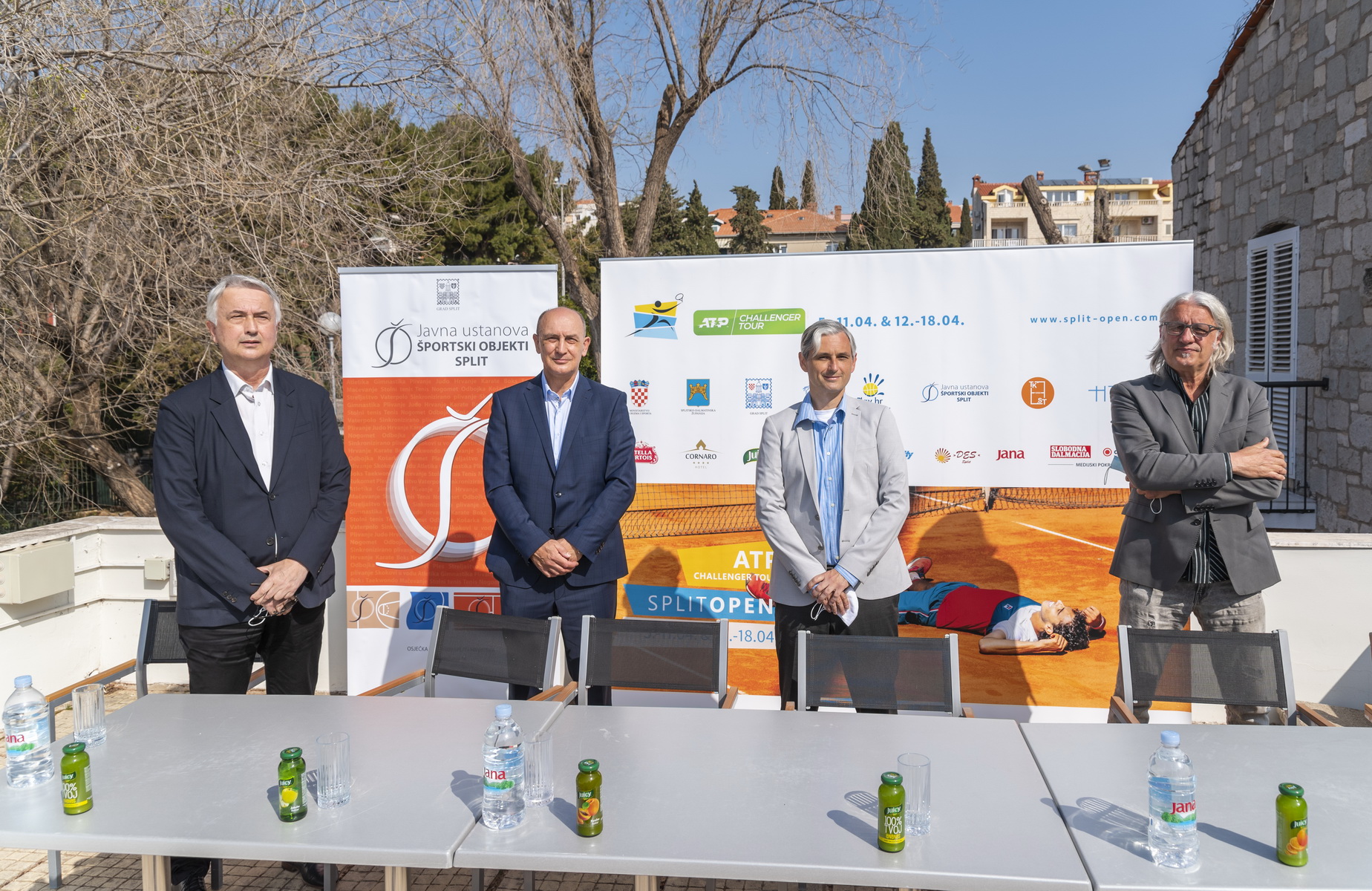
Robert Pleško
Ivica Kekez, president of TK Split 1950, announced that Split could soon win the tournament at the ATP level.
"We are creating a world brand, and Split and this center deserve an ATP tournament, although it will depend on the economic situation in the city. We could do it at the level of Umag, if not better."
The statement of Tomislav Borozan, director of the Public Institution Sports Facilities Split, is on the same track.
“I am sure that this tournament will make a step forward in quality and organization and that it will become an ATP tournament. This center deserves it. By the way, traffic and parking are a big problem at this location, but we have a solution. There is a two-story parking project on plots 8, 9, and 10 where there are over 3000 square meters; it was denied funds due to COVID-19 last year. There are 250 parking spaces and three new tennis courts at the road level, which would give us three indoor courts. It is a self-sustainable project; not a penny is needed from the city budget.”
The draw for the Split Open qualifiers is scheduled for Saturday, and the main tournament draw for Sunday. Qualifiers are played on Sunday and Monday, and the first matches of the main tournament are also from Monday, April 5t.
To read more about sport in Croatia, follow TCN's dedicated page.
To learn more about sport in Croatia, CLICK HERE.
Croatia Only EU Country Outside Euro Area to Report Drop in Hourly Labour Costs
ZAGREB, 2 April, 2021 - Croatia is the only EU member state outside the euro area to have recorded a decrease in hourly labour costs in 2020, a Eurostat report shows.
Last year, hourly labour costs rose by an average of 3.1% in the EU and by 2.9% in the euro area.
Among the non-euro area countries, the highest increases in hourly labour costs expressed in the national currency were observed in Hungary (+7.9%), Bulgaria (+7.8%), the Czech Republic (+7.4%) and Romania (+7.2%). The lowest increases were registered in Sweden (+1.1%) and Denmark (+2.0%).
Croatia was the only non-euro area country to see a drop in hourly labour costs (-1.0%).
Among the euro area member states, the highest increases in hourly labour costs were reported in Portugal (+8.6%), Lithuania (+7.5%) and Slovakia (7.0%). The lowest increases were observed in Luxembourg (+0.5%), Finland (+0.7%) and the Netherlands (+0.8%). Decreases were registered only in Malta (-4.7%), Cyprus (-2.7%) and Ireland (-2.7%).
Last year, the average hourly labour cost was €28.5 in the EU and €32.3 in the euro area, compared to €27.7 and €31.4 respectively in 2019.
The differences among the countries were huge, with the hourly labour costs in Bulgaria being seven times lower than those in Luxembourg.
The lowest hourly labour costs in the EU were recorded in Bulgaria (€6.5), Romania (€8) and Hungary (€9.9). They were followed by Lithuania (€10.1), Latvia (€10.5), Croatia (€10.8) and Poland (€11).
Among the euro area countries, the lowest hourly labour costs were registered in Slovakia (€13.4), Estonia (€13.6) and Portugal (€15.3). In Slovenia and Spain these costs were around €20, while in Germany, the Netherlands and Austria they ranged between €30 and €40. The highest hourly labour costs were reported in Denmark (€45.8), Luxembourg (€42.1) and Belgium (€41.4).
For more about politics in Croatia, follow TCN's dedicated page.
HRK 6.7m Welfare, Development Project Agreements Handed Over
ZAGREB, 2 April, 2021 - Two grant agreements worth HRK 6.7 million were handed over in Petrinja on Friday for projects by the local development agency PETRA and the Red Cross office in Sisak.
Labour, Pension System, Family and Social Policy Minister Josip Aladrović said that the first agreement was financed with EU funds in the amount of HRK 2.5 million and was intended for the establishment of a centre for social entrepreneurship in Petrinja.
The other grant agreement, worth close to HRK 4.2 million, is intended to help alleviate poverty in the region of Banovina and northern Croatia, through donations of food and/or basic material assistance.
Attending the ceremony at which the grant agreements were handed over were also War Veterans Minister Tomo Medved, who heads the task force dealing with the aftermath of the 29 December earthquake in Sisak-Moslavina County, and local officials.
For more about politics in Croatia, follow TCN's dedicated page.
22,000 Tourists Staying in Croatia Ahead of Easter
ZAGREB, 2 April, 2021 - More than 22,000 tourists are staying in Croatia ahead of Easter, including 17,000 foreigners, and although the number is expected to increase over the holidays, turnover is not expected to reach the pre-pandemic levels, National Tourist Board director Kristjan Staničić said on Friday.
"Considering all the circumstances, we don't expect for the coming Easter holidays the level of turnover from previous years and previous Easter holidays but, by adhering to all epidemiological measures and protocols, we expect tourism activities, with an emphasis on the domestic market," he told Hina.
Since the school spring break follows the Easter holidays, more domestic tourists are expected next week, alongside those from Germany, Slovenia, Austria, Italy and the Czech Republic, he said.
More than 130 hotels and 60 campsites are currently open and most tourists are staying in Istria County, the northern Adriatic Kvarner region and Split-Dalmatia County, Staničić said, calling on all citizens and tourists to behave responsibly.
For more about travel in Croatia, follow TCN's dedicated page.
10 Reasons to Visit Lika's Interesting Barac Caves in Spring
Located in the heart of Lika, the Barac caves are one of the many treats of this landlocked region often neglected in comparison with Istria, Dalmatia or Kvarner. Despite that, this area has been gaining more and more attention over recent years. Jutarnji List recently provided ten reasons to Croats as why they should visit the Barac caves in spring, and here at TCN, we don't see why they couldn't apply to our non-Croatian readers too. So, here are ten reasons to visit the Barać caves, according to Jutarnji List.
1.) The location is easy to get to
From the Croatian capital of Zagreb, you need to drive only 130 kilometres or, in other words, a little under two hours. The trip is a little bit longer if you come from Rijeka (170 kilometres) or Zadar (150 kilometres). Once you reach the village and municipality of Rakovice, you can easily follow the signs to the Barac caves.
2.) This destination is part of a world-renowned tourist offer
Located close to the oldest National Park in Croatia, Plitvička Jezera (Plitvice Lakes), the Barać caves are part of Lika's offer as a destination, which is placed in the top 100 sustainable destinations and the top 15 finalists.
3.) They're weekend trip perfection
The Barac caves are an excellent spot for a one-day field trip. Along with touring the caves, there are additional offers of hitchhike tracks, a children's playground, a picnic area, a badminton court, and more.
4.) They're just as perfect for active vacation lovers
With two nearby adrenaline parks, the ability to rent quads and bikes, as well as and organised cycling tours and horse-riding through the Plitvice valleys, there's no chance of you running out of things to do. With some pre-arrangements, you can also visit the Dolina Jelena (Deer Valley) ranch in town of Drežnik, where you can come close and even feed the deer there.
5.) It's for all ages
To enter the cave, there is a light 200 metre uphill stroll that doesn't require much of a physical effort. You can tour this area only accompanied by a guide whose interpretation and info is suitable for all ages.
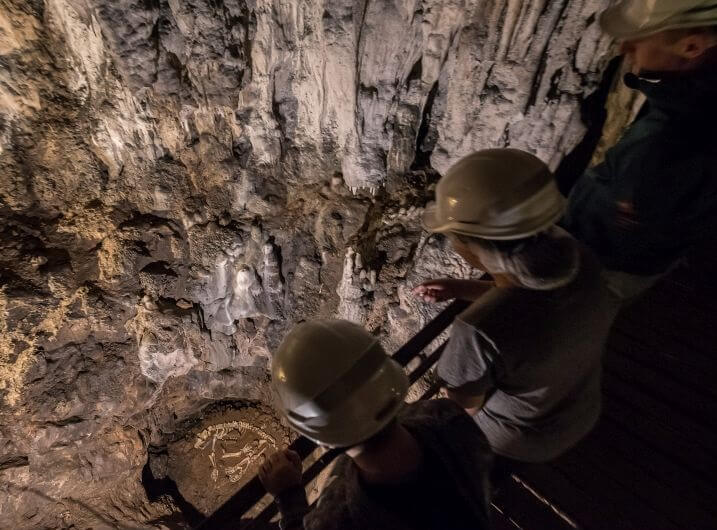
© Denis Stošić / Lika Destination
6.) It's the home of bats
Rhinolophus ferrumequinum and Rhinolophus hipposideros are two types of bats you can find in almost every auditorium of the upper Barac cave. And with the coming of spring, they're waking up and hunting bugs which is an excellent opportunity to learn more about them.
7.) Cave bear memorabilia
30.000 year old remnants of a cave bear are displayed within the Barac caves which is extremely rich in both archaeological and paleontologist findings with remains from the Ice Age all the way to the Middle Ages.
8.) Face your fear of the dark
The Barac caves are lit up, but you can also experience the cave in its natural ambient - in complete darkness with the sound of water drops. It's scary at first, but exciting and relaxing at second sight.
9.) An idividual approach
To organise an event it takes two adults who will be accompanied by a guide. Tickets don't need to be bought up-front, and the guy welcomes you at the info counter. The tour is organised upon your arrival. Before arranging the tour, the guide will give you some basic information before you purchase a ticket, and the tour lasts for about 60 minutes.
10.) Happy customers
Tripadvisor awarded Lika's stunning Barac caves with the ''Travellers choice'' title meaning they're among the top 10 percent of the best destinations on Tripadvisor and are constantly receiving new and excellent reviews. Google also awarded the Barac caves with a rating of 4.7/5 and Facebook gave them a 5/5.
For more about travel in Croatia, follow TCN's dedicated page.
KK Split Basketball Coach Mile Karakaš: "For Me, it's Not a Job, it's Love."
April 2, 2021 - TCN contributor Burak Canboy sits down for an interview with KK Split coach Mile Karakaš.
The wait for the next game continues for KK Split as a new case of Corona on the team means the cancelation of the national league game in Gorica on Saturday. The rescheduled ABA league game against Krka will probably also need to be canceled again, and it is not even clear when the next game will be played.
Mile Karakaš was the head coach of the Split junior team for five years. He was the U16 Croatia national team coach, which won the gold medal at the U16 FIBA EuroBasket 2018. Since February, he is the head coach of the ABA League team KK Split. He took the time to give us an interview during this unusual time.
First of all, thank you for agreeing to this interview. You must be having a very chaotic time now after you had one of your players test positive for COVID 19 a few days ago. How does a case of Corona on the team affect the routine exactly?
I cannot say too much about that as it is still not a clear situation. We had a case of Corona on the team before the Krka game. Unfortunately, it has spread out, so we are not sure how we will be able to play the remaining games and the postponed games in time. The Gorica game has now been postponed. Maybe the Krka game will also be postponed again.
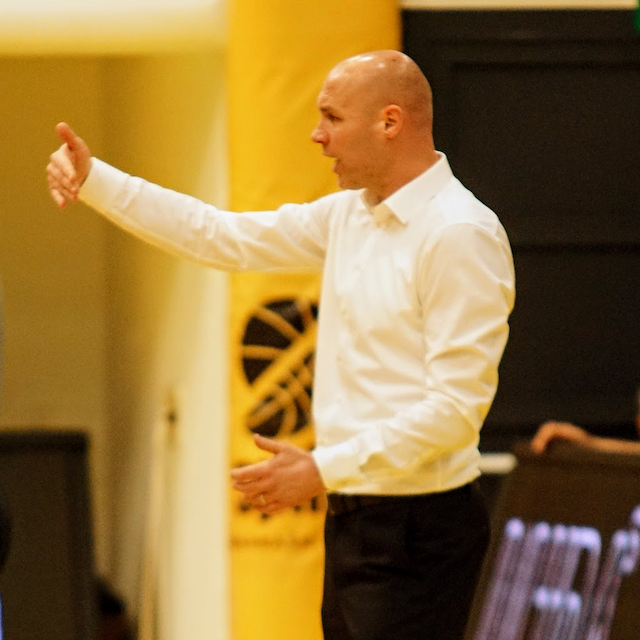
There is no daily routine right now. All I can tell the players is to stay at home and to stay safe. We wait for answers from epidemiologists, crossing fingers that there will be training possible again. Now we already had 5 or 6 days without practice and hoped to start again. On Tuesday night, we received the test results, and we have another positive player. I can only give out individual programs for the players so that they will be in shape.
How do you feel about working in sports during Corona, especially comparing your work to people in hospitals working overtime and restaurants and other places being closed?
We all are thinking mostly very selfish and about ourselves first and tend to forget that it is not easy for everyone. There is constant stress that many people have to deal with.
After the first blow of staying at home and total cancellation of sports, at least something is happening right now, but it is not normal work. However, compared to other people who depend on tourism or work in bars and restaurants and are laid off and let go, we are still the lucky ones. We can’t even compare ourselves to people working in hospitals now. We really are still fortunate to be able to do our work in sports.
You have taken over a team that had just lost the final of the Krešimir Ćosić Cup, was deep in the relegation of the ABA League, and had only won 1 game of 10 in the ABA league since the middle of November. After taking over the coaching position from Ivica Skelin, your team has won all 7 games in the National League and 2 of the last 4 games in the ABA League. What has changed with you as a coach?
I cannot talk about the coach before, only about myself. First, I talked to all the players and people in the club about all kinds of things but especially about the emotional situation that everyone was in. We tried to evaluate what was working well and what was not working well. Additionally, to change the things that did not work, I tried to put in my own ideas. However, that was not easy because I never had any time to introduce something big. We never had more than 4 days between games, so most practices can only be used for regeneration or preparation of the next game.
I believe that all players have to be ready and will all have their opportunity. Everyone has to understand their role on the team. In Doc Rivers' words, “be a star in your role."
Ten players can not all have the most minutes and the ball all the time. When all understand that then good things happen.
I still want to play faster, but it cannot be all done at once. With more time, the team will understand more of how I would like us to play.
How much time do you have for that? Can you share the length of your current agreement?
I only have a contract till the end of the season.
Would you like to continue next season?
Of course, I want to continue after the season. At this point, we are only thinking about this season. I have the most respect for clubs that allowed their head coaches to work for long periods of time. For example Bill Belichick [NFL New England Patriots, since 2000], Alex Ferguson [Premier League, Manchester United 1986 to 2013], Greg Popovich [NBA San Antonio Spurs, since 1996]. I cannot compare myself to these iconic trainers, but my dream is to have a lot of time to work like they were. I believe that is the best way for a club as it allows for long-term success.
What are the management’s goals for this year?
The goals are to stay in ABA 1 league and to win the national league. These were not presented as hard goals to me, like "either you do it or we need to find someone else for next season," but that clearly is everyone's expectations.
Assistant Coach Srđan Subotic was also a candidate as the new coach of the team. How does it feel to be working with someone who may have ambitions himself to take over your job someday in the future?
In the first meeting with Srđan and Ante [Marović] I asked them quite clearly if they have any problem working with me. They confirmed that they want to help me, the team, and the club. Without them, it would not have been possible to achieve the success that we have. They helped me tremendously because they know the team much better than I do. I have no problems at all with them and do not think twice about their opinions and recommendations.
When talking to your former teammates and coaching colleagues, you are described as a person who dedicates himself to the sport of basketball with all his heart. You have proven that you are a great coach winning the gold medal with the U16 Croatia national team at the U16 FIBA EuroBasket 2018. What made you choose to start playing basketball, and what made you decide to make it a profession?
It was my Dad. He truly made me fall in love with sports. I have great memories of sports in Yugoslavia. We were always going to all the Jugoplastika games with Rađa, Kukoć, Perasović, and so many others. Also, we went to Hajduk games, but it was more basketball.
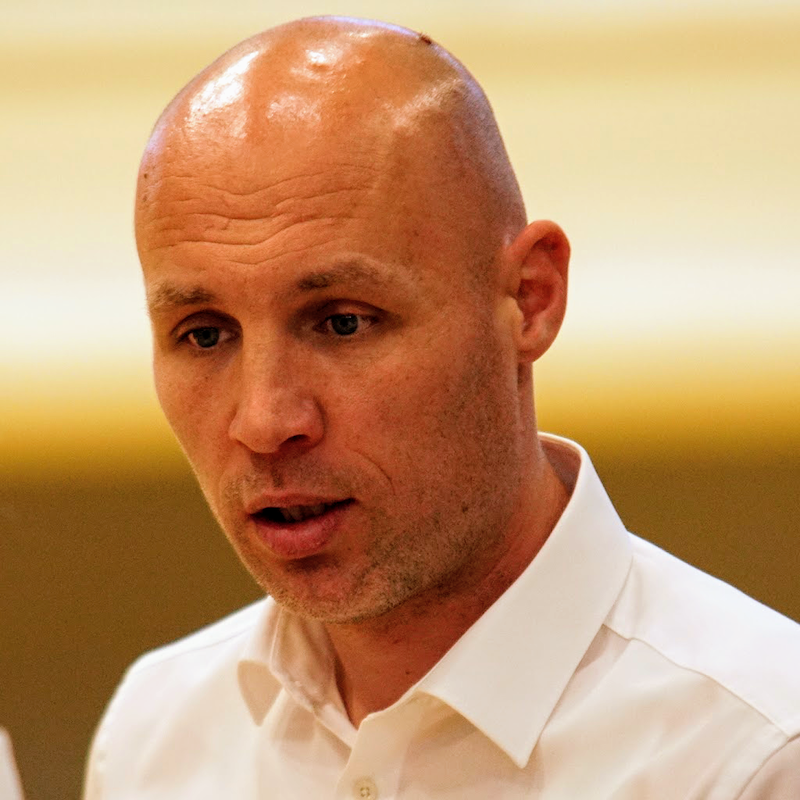
I especially remember how the national team with Drazen [Petrović], Toni [Kukoć], and Dino [Rađa] played the final against USSR with Sabonis [1988 Olympic Games Seoul].
After finishing High School, I went to study kinesiology. At the end of the playing career, I had an opportunity to work as a coach in Trogir. And a serious level of game or money was not in sight as a player. At that time, I was not very ambitious, but with time, I really loved it and realized I am actually quite good at it and always received great feedback from the players and club managers.
It never felt hard for me to work as a coach. I can spend 6 hours in the gym, and it does feel like seconds. I have done many jobs. You name it; I have done it. But those things were only jobs to pay for bread, not making me happy. Being a basketball trainer, for me, it's not a job. It's love.
Even though as an adult player, you have played in the close vicinity of Split. Adriatic, Solin, Mislav, Alkar, Kaštela, and Trogir after being a youth player at KK Split. How did it feel being asked to work in the same gym again in which you have spent so much time growing up?
It was a great honour because somebody recognized my work in Adriatic and Trogir. It was Dino Rađa who asked to become an assistant coach to Burić. It was financially a tough time with a very insecure future of the club. At that time, I was living from the paycheck, and my job at Adriatic was pretty safe, but my wife asked me if I was crazy to even think about it twice. She convinced me that it was a great opportunity and regretted it later if I didn’t take that opportunity. Of course, she was right. Everything turned out great, and here we are now.
During the game against Mega Belgrade, Roko Leni Ukić was the top scorer. He is only two years younger than you. The same as team captain Mateo Kedžo. What is the biggest difference between working with a U16 player versus coaching players that are probably already thinking about what to do after their active playing days?
There are many different players, but kids under 16 are looking at you like a god. They have their own opinions, but they will not push that like Roko or Kedžo. You need to have a different approach. I don't want to sound arrogant, but it is easy for me. I was a player myself, even not on a high level, but I understand what a player thinks and wants. At all times, the best approach is to be honest and open.
I don't see any situation that can happen where I will not know what to say. It is important to care for them and to respect them. If they feel that, they will give the respect back.
Most foreign readers at Total Croatia News may not know about basketball in Croatia, especially basketball in Split. What would you like them to know?
I am not sure if they will hear about basketball in Split for the first time, but they should know that Jugoplastika Split was named the best team of the 20th century by FIBA.
The team was 3x consecutive European Champions and won several cups and national titles in Yugoslavia.
This region is specific; people are crazy and stubborn, only titles count. Even if compared to other cities, it is a small town; they expect large success here.
Think of greats like Toni Kukoć, Dino Rađa, Goran Ivanisević, Blanka Vlasić. Nobody will stop them and ask for an autograph. Even though they think it's nice to see them, they will mostly treat them like "who to hell are you."
But great success doesn't come just talking about it; you have to go day by day and game by game.
So far, KK Split has won just one Croatian championship. Hopefully, this year, we will win one more.
Good luck with that; I hope your players will soon recover to continue that quest, and many thanks for this interview!
You are very welcome. Let me know anytime you want to hear more.
To read more about sport in Croatia, follow TCN's dedicated page.
To learn more about sport in Croatia, CLICK HERE.


